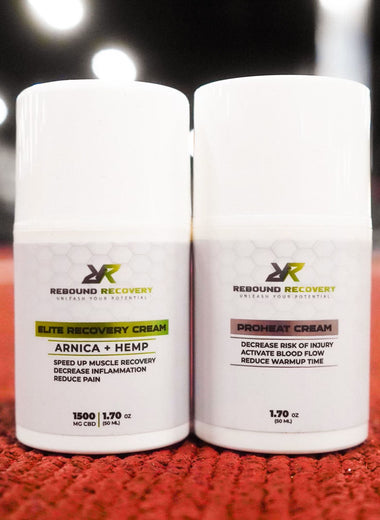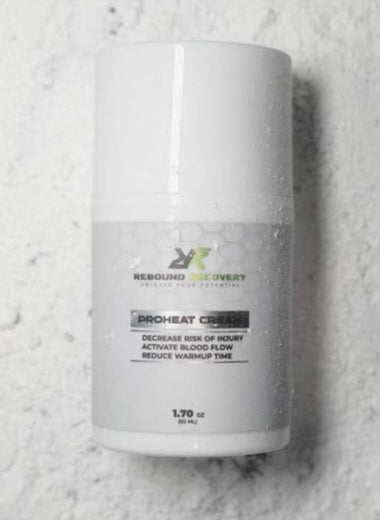Endurance athletes push their bodies to the limit—whether it's training for a marathon, crushing a triathlon, or grinding through long cycling sessions. But while training is essential, recovery is just as important.
The problem? Many endurance athletes make avoidable mistakes that slow down recovery, increase injury risk, and hurt long-term performance.
If you want to train harder, race stronger, and feel better while doing hard things, avoiding these top 5 recovery mistakes is crucial.
1. Ignoring Post-Workout Recovery Windows
💡 The Mistake: Many endurance athletes think recovery starts hours after a workout, but the first 30–60 minutes after training is the most critical window for recovery.
🔹 Why It’s a Problem:
- Muscles need immediate replenishment after prolonged exertion.
- Delaying recovery leads to longer soreness and slower muscle repair.
- Failing to restore nutrients and hydration prolongs fatigue.
✅ Fix It:
- Rehydrate immediately after training with water and electrolytes.
- Eat a balanced recovery meal with protein, healthy fats, and carbs.
- Apply a natural recovery solution like Rebound Recovery’s Elite Recovery Cream to support faster healing and reduced soreness.
2. Overlooking the Role of Sleep
💡 The Mistake: Underestimating the impact of sleep on muscle recovery and endurance performance.
🔹 Why It’s a Problem:
- Sleep is when muscles rebuild and adapt to training.
- Poor sleep leads to higher cortisol levels, which slows recovery and increases stress.
- Reduced REM sleep can weaken mental focus and endurance.
✅ Fix It:
- Get at least 7-9 hours of sleep per night.
- Develop a consistent bedtime routine to improve sleep quality.
- Use natural recovery solutions (like organic hemp extract) to promote muscle relaxation before bed.
3. Overtraining Without Proper Recovery Days
💡 The Mistake: Many endurance athletes believe more training = better results, but too little recovery leads to burnout, injuries, and performance plateaus.
🔹 Why It’s a Problem:
- Overworked muscles never fully repair, leading to breakdown instead of growth.
- Increased risk of injuries like stress fractures and tendonitis.
- Elevated fatigue and poor performance in races or competitions.
✅ Fix It:
- Schedule active recovery days with light movement like walking, yoga, or swimming.
- Rotate intensity levels throughout the week to prevent overuse injuries.
- Incorporate targeted recovery techniques like massage, stretching, and natural anti-inflammatory solutions (e.g., turmeric-based products).
4. Relying on Synthetic Pain Relievers Instead of Natural Recovery
💡 The Mistake: Using over-the-counter painkillers or synthetic creams to numb pain rather than addressing the root cause.
🔹 Why It’s a Problem:
- Painkillers mask inflammation instead of helping the body heal.
- Synthetic products may contain harsh chemicals that irritate skin and muscles.
- Long-term use of NSAIDs (like ibuprofen) can harm gut health and increase inflammation.
✅ Fix It:
- Choose natural alternatives like arnica, turmeric, and organic hemp extract to support muscle recovery without harmful side effects.
- Use Rebound Recovery’s Elite Recovery Cream, which combines science-backed natural ingredients to target inflammation at its source.
5. Neglecting Mobility and Flexibility Work
💡 The Mistake: Focusing only on mileage and endurance training while skipping mobility exercises and stretching.
🔹 Why It’s a Problem:
- Tight muscles lead to imbalances, increasing the risk of strains and overuse injuries.
- Poor flexibility limits range of motion, affecting performance.
- Ignoring muscle care results in long-term stiffness and chronic pain.
✅ Fix It:
- Add dynamic stretching before workouts and static stretching after.
- Use foam rolling and deep tissue work to release tight muscles.
- Apply a natural warming cream like Rebound Recovery’s ProHeat before training to enhance circulation and flexibility.
Final Thoughts: Smart Recovery = Stronger Performance
Recovery isn’t just something you do after training—it’s what allows you to train harder, race better, and stay injury-free. By avoiding these common recovery mistakes, endurance athletes can improve performance, reduce soreness, and extend their athletic careers.
🚀 Train smarter. Recover faster. Feel better.
Read more recovery insights here:
👉 Rebound Recovery Insights





